Film Review: Everything Everywhere All At Once (2022)

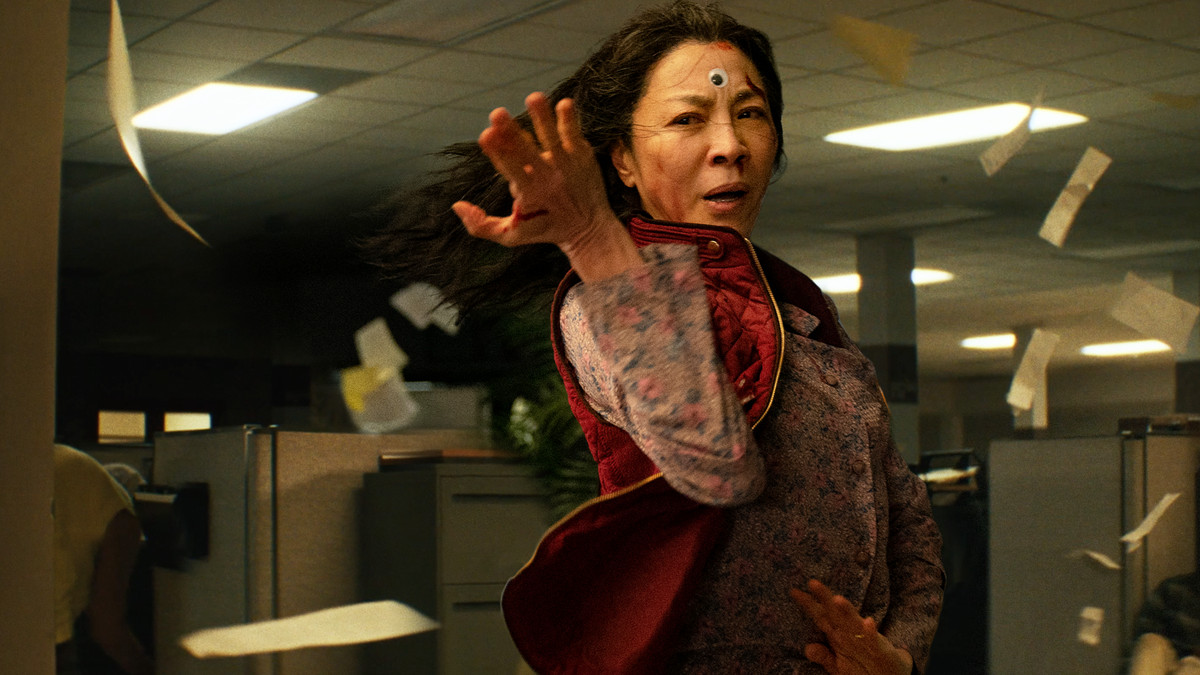
By James Rosario and Edwin Arnaudin
James Rosario: I’d like to start this conversation by stating that, despite its flaws, Everything Everywhere All At Once put a gigantic smile on my face. It’s a weighty think-piece wrapped up in a martial arts psychedelic freak-out sci-fi comedy, but it works, even though it probably shouldn’t. I can’t help but wonder how general audiences will react to it. What were your instinctual thoughts as you left the theater?
Edwin Arnaudin: I was wondering if I’d seen a more creative film before. Recency bias is real, but the amount of visual inventiveness that Daniels (writers/directors Dan Kwan and Daniel Scheinert) successfully throw at the screen in the service of an imaginative story is stunning. I haven’t seen their brilliant Swiss Army Man since its 2016 theatrical run and recall it being somewhat more cohesive on the narrative front, but the ambition on display here makes up for practically any wrinkles on the script side.
James: Personally, I had no problem with the writing. A bit esoteric, perhaps, but that’s not the kind of thing likely to ruin my good time unless it’s deliberately pompous (looking at you Christopher Nolan). It’s very easy for sci-fi films to bog themselves down with overworked exposition, but Daniels don’t insult us with the science — they just use it to advance what’s essentially a very well-developed family drama and midlife crisis story, which only happens to take place amidst a bonkers multiverse.
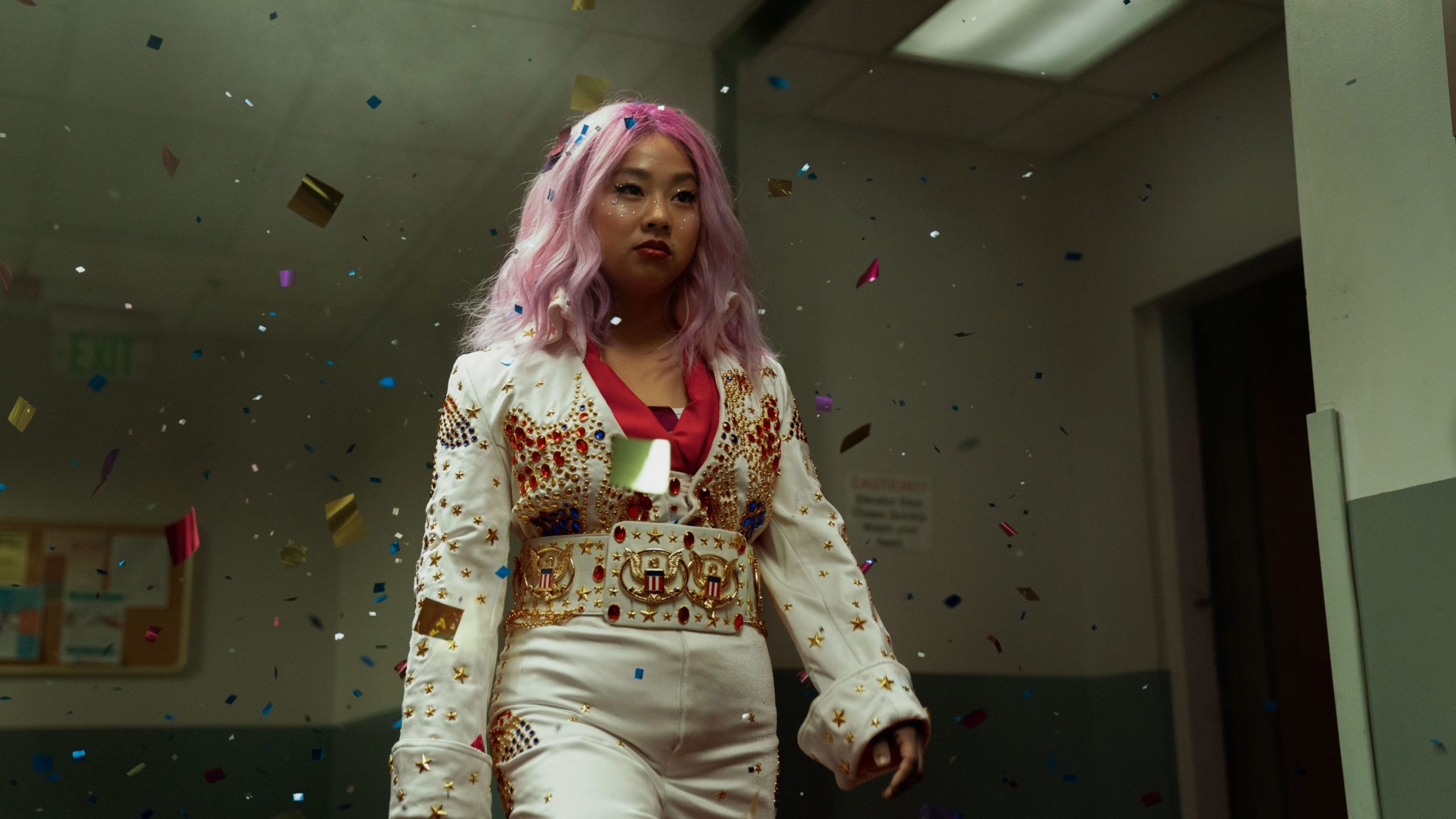
Edwin: I was only tripped up at the end when the film’s main points were spelled out a little too clearly for my tastes. But in hindsight, those moments might be necessary to help ground the film’s unwieldy nature — especially for viewers who need a little hand-holding and might have been miffed without it.
James: I’m curious, too, if you got as much of a Quentin Tarantino “wear your influences on your sleeve” vibe as I did. I think the references to Hong Kong action cinema are obvious in both pacing and editing, but what else? I saw shades of Spike Jonze, Michel Gondry, and Charlie Kaufman for sure, but perhaps more importantly, I felt Daniels has a deep connection to provocateurs like Terry Gilliam, Chris Marker, and even Alejandro Jodorowsky. Is it safe to include Everything Everywhere All At Once with such luminaries of outsider cinema?
Edwin: I think so. The tale of overextended wife/daughter/mother/entrepreneur Evelyn (Michelle Yeoh) discovering that she’s a key player in the multiverse fits right in thematically with the filmmakers you mentioned. And it’s a pretty perfect set-up for Daniels to run wild with their various inspirations. Eternal Sunshine of the Spotless Mind kept coming to, er, mind, and in addition to the terrific nods to Yeoh’s martial arts past, the wide open narrative possibilities make room for a Wong Kar-wai universe that sees Evelyn and a debonaire version of her husband Waymond (Ke Huy Quan, aka Short Round from Indiana Jones and the Temple of Doom, all grown up) going full In the Mood for Love.
Just as impressive as the melding of so many influences is that it was all enacted using only a few locations and largely practical effects. This does not feel like a $25 million movie.
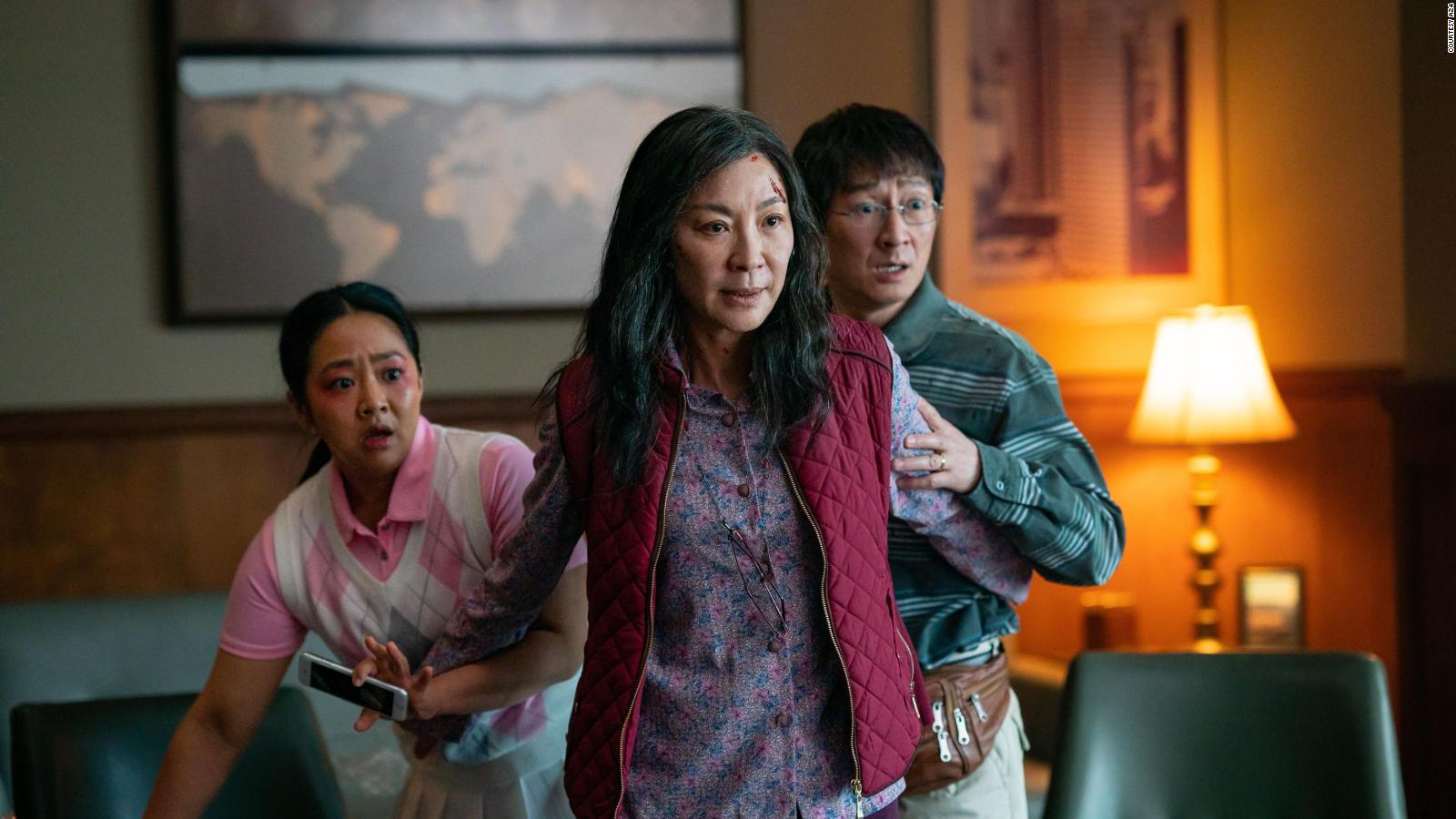
James: And that those two main locations are a laundromat and an IRS building is brilliant. It’s little, everyday things like this that make me so tickled to see it again — and recommend it to everyone I know. Speaking of Quan, I’d like to point out that he is, by a tremendous margin, my favorite child actor of the ’80s. Short Round and Data (The Goonies) are two of the biggest heroes of my childhood. It’s so good to see him in such a wonderful, well-acted, funny, and sensitive role here.
But, of course, this is Yeoh’s movie, and she’s nothing short of spectacular as Evelyn. She brings a terrifically existential sorrow to the role that’s hard to shake and very easy to relate to. The absurdity and profundity of her plight reminds me of something Douglas Adams would write. I know it’s early in the year, but my fingers are crossed for some major awards consideration. Do you think she has a chance?
Edwin: Dude, the Oscars were a week and a half ago! But yes, I too confess to thinking of Yeoh’s performance in an awards capacity. It’s one of those special roles that pays homage to an under-appreciated star’s storied past while showing that she clearly still has plenty to offer. Yeoh’s been stealing scenes with supporting turns in such recent fare as Crazy Rich Asians, Shang-Chi and the Legend of the Ten Rings, Last Christmas (and, I’m told, Star Trek: Discovery), so this lead part feels like a culmination of those efforts and her career overall.
I also wouldn’t mind seeing editor Paul Rogers pick up some hardware for his efforts. There’s a lot of bravado, rapid-fire work on display, but also a good amount of subtle chopping in the copious fight scenes and between universes that hold the storytelling together. What did you make of the film’s technical qualities?
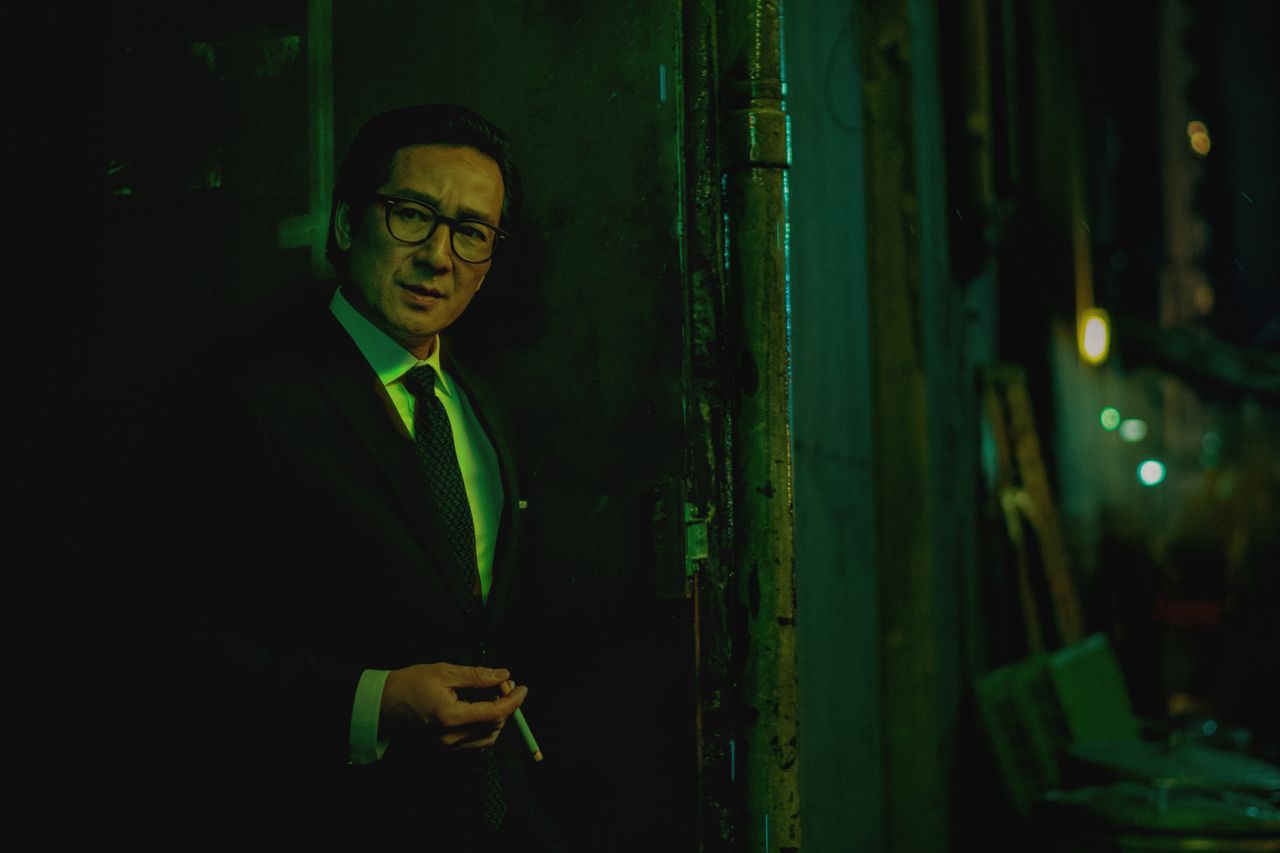
James: It’s funny that you mention the subtle chopping in the fight scenes because all the way through the fanny pack battle (yes, the fanny pack battle) and about three-quarters of the way through the Jamie Lee Curtis stairwell fight (yes, the Jamie Lee Curtis stairwell fight) I couldn’t put my finger on what it was that made it so interesting. Then it hit me: It’s cut like an old Shaw Brothers movie. The edits fall on beats that we’ve been conditioned to interpret as “incorrect,” but it’s these very “mistakes” that call up so much nostalgia. It’s a pretty ingenious approach, actually.
Edwin: I’ll take your word on that! One more reason to get to the recent Shaw box set from Arrow ASAP.
James: And don’t get me started on all the cerebral universe-jumping. I’m in complete awe of how well that holds together. In lesser hands, the entire narrative could have easily flown off the rails at any moment but it never does thanks to a keen eye and some serious editing talent. It’s the kind of vibrant, metaphysical mutation of a movie that I can only imagine is viewed by editors as either a dream or a nightmare to work on, depending on their sensibilities. And maybe their bravery.
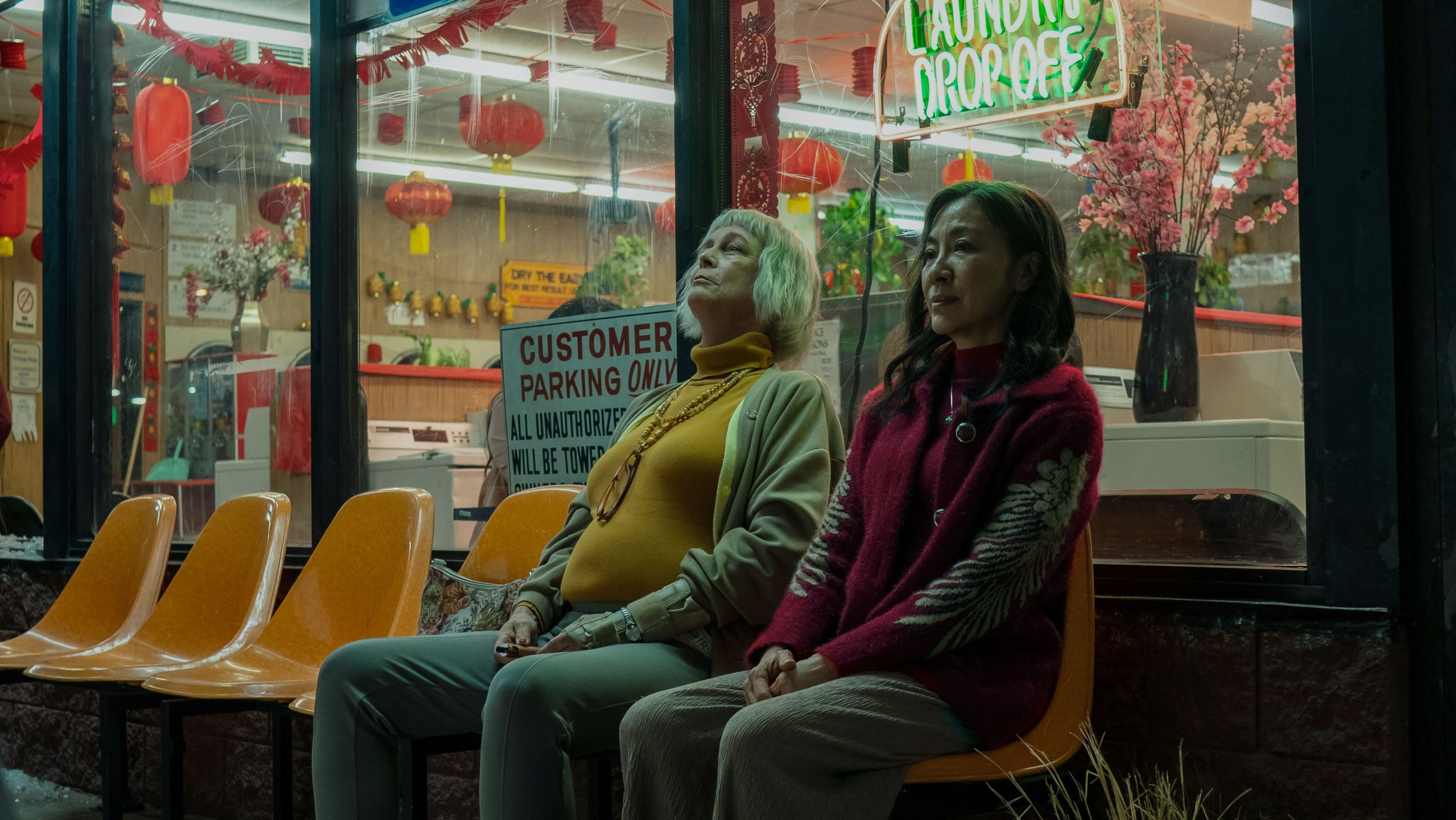
Edwin: Daniels don’t work with no slouches! It’s a true team effort, all of which contributes to a style that’s both an amalgam and, by being an amalgam, it’s own thing.
One aspect we haven’t discussed is Evelyn’s fraught relationship with her daughter Joy (Stephanie Hsu, The Marvelous Mrs. Maisel), whose own multiverse identity is none other than the evil Jobu Tupaki, hell-bent on destroying Evelyn. With this and Turning Red, it’s a big season for Asian mother/daughter drama.
James: It certainly is! But this brings up an interesting point: For all its inventiveness, imagination, and off-the-wall explosions of madness, Everything Everywhere All At Once is in essence a family drama about regret, frustration, and unfulfilled potential. It’s actually quite inspiring to ponder the ideas at its heart — how each of us is capable of any number of great acts under the right circumstances — and then apply them to own hopes, dreams, and lived experiences. How many movies can you think of that make you want to truly live your best life?
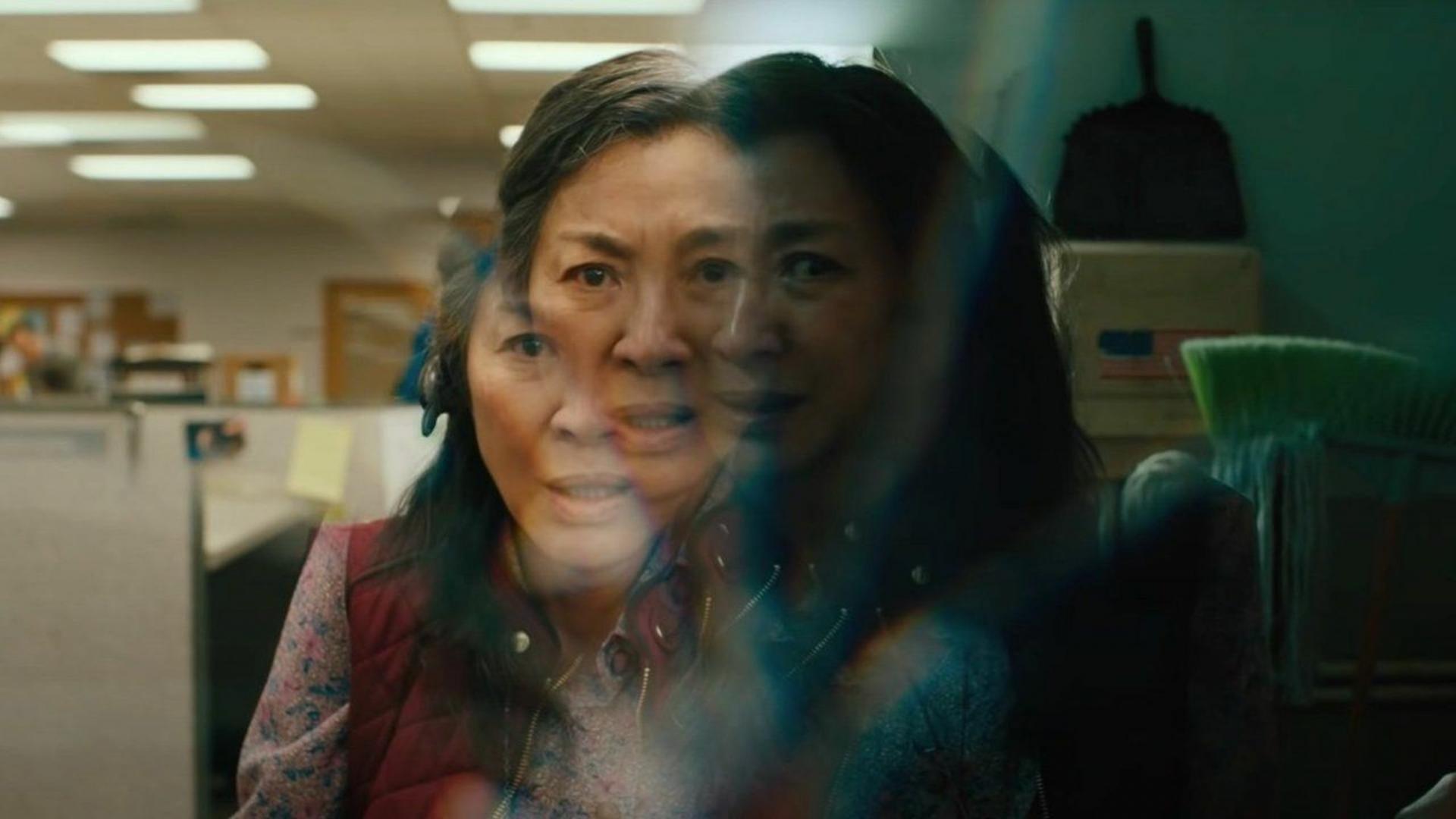
Edwin: Not enough! In a time when an increasing number of viewers possess magpie mentalities and allow a few shiny details to give them amnesia regarding some truly shit writing, acting, and directing (looking at you, Scream and Godzilla vs. Kong), it’s a (no pun intended) joy to experience a film with a firm foundation from which these zany details can blast off. I look forward to taking another spin with this crew, not only to see what I missed attempting to take it all in the first time — but because I genuinely want to spend more time in this world.
Much as I adore After Yang, Apollo 10 1/2, and Turning Red, the degree of bold ingenuity on display here makes me think EEAAO is my current favorite film of the year thus far. Either way, it’s getting a full A from me.
James: It’s easily my favorite of the year so far as well, and gets a big smiling A from me, too.
Originally published by ASHEVILLE MOVIES.
